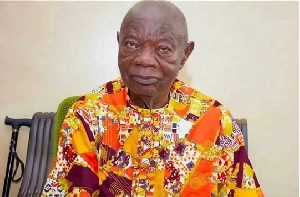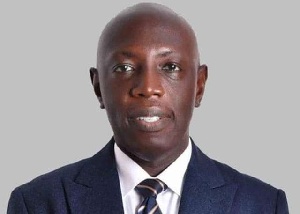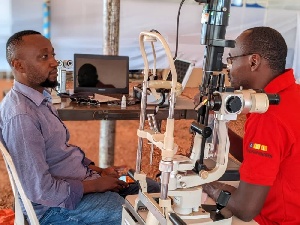- Home - News
- Elections 2024
- News Archive
- Crime & Punishment
- Politics
- Regional
- Editorial
- Health
- Ghanaians Abroad
- Tabloid
- Africa
- Religion
- Photo Archives
- Press Release
General News of Wednesday, 4 June 2025
Source: www.ghanawebbers.com
OSP declaring Ken Ofori-Atta a fugitive violates constitution - Prof Ansa-Asare
A former Director of the Ghana School of Law has criticized the approach taken by the Office of the Special Prosecutor (OSP) towards former Finance Minister Ken Ofori-Atta.
Professor Kwaku Ansa-Asare described this approach as aggressive and intimidating. He believes it violates constitutional principles of fairness and dignity.
Speaking on PM Express on Joy News, he expressed concern about how state institutions are handling Mr. Ofori-Atta's investigation. He emphasized that, despite public perception, the former minister is still a suspect, not a convict.
“Ken Ofori-Atta is not guilty until proven so,” he stated firmly. No one has established his guilt yet.
He cited Article 19(3) of the 1992 Constitution. This article states that every accused person is presumed innocent until proven guilty.
“Because he’s a suspect under Article 19, clause 3, he is presumed innocent,” he stressed.
Prof Ansa-Asare questioned the tone and tactics used by the OSP recently. He criticized framing Ofori-Atta as a fugitive.
“Why declare him the most wanted fugitive?” he asked pointedly. “We are making Ken look like a murderous fugitive.”
He noted that even if there are concerns or suspicions, the rule of law requires a measured response.
“The Special Prosecutor has outlined five serious issues—not offences,” he explained. If they aren't established offences, there should be a proper process to follow.
He accused the OSP of overreach and disregarding constitutional protections. “The state hasn’t approached this in line with fundamental human rights,” he said.
Prof Ansa-Asare warned that this strategy may cause more harm than good.
“When you terrorize an innocent citizen, it intimidates them,” he said. “They will find it difficult to return.”
“Don’t declare anyone as a most wanted fugitive in such a manner,” he added.
When asked if he believed the former minister was being terrorized, Prof Ansa-Asare replied affirmatively.
“I think so,” he said. “The long arm of criminal law seems to be reaching too far.”
He suggested that matters could have been handled more decently.
His appeal was not to halt accountability but to preserve justice system integrity.
“The law deals with evidence,” he concluded. “Let’s show respect for both the law and individuals.”
Entertainment










